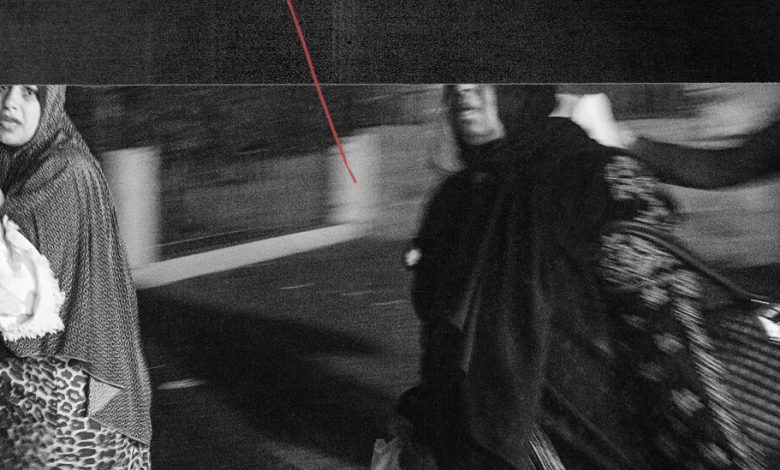War in a Time of Informational Chaos

As a few bleak anecdotes illustrate, it is often impossible, in real time, for outsiders to know what is happening in the ceaselessly reigniting war between Israel and the Palestinians. This was true even before social media, and before Elon Musk acquired Twitter and turned it into the cesspool of misinformation, trolling and hysteria now called X. But today countless people are plugged into a frantically churning news cycle, trying to instantly metabolize a conflict that is a hall of mirrors in the best of times and is now careening toward a possible regional war, with all the propaganda and mass panic that entails. It’s an epistemological catastrophe that is putting people’s lives in danger.
I went to bed on Tuesday night assuming, as many people did, that an Israeli airstrike killed at least 500 people in the Al-Ahli hospital in Gaza. That’s what the Gaza Health Ministry claimed, and those claims made headlines in leading news outlets, including this one. Politicians issued impassioned condemnations of what some called Israeli war crimes. Social media lit up with anguished howls of grief and rage. Furious protests erupted throughout the Middle East. A historic synagogue in Tunisia was reportedly set alight, and a synagogue was firebombed in Berlin. The leaders of Jordan and Egypt canceled a meeting with President Biden, where they would have discussed aid to Gaza.
Of course, I’d read Israel’s insistence that an errant Islamic Jihad rocket had caused the explosion at the hospital, but didn’t put much stock in it, because in the past when Israel has accidentally killed civilians it has blamed the deaths on Palestinians. In May of last year, the Palestinian-American journalist Shireen Abu Akleh was shot and killed while covering an Israeli raid on the Jenin refugee camp. Israeli officials said she was either shot by a Palestinian or by an Israeli soldier aiming at a Palestinian gunman. A New York Times investigation, however, contradicted the official Israeli line. It found that the bullet that killed Abu Akleh was fired from the direction of an Israeli military convoy, and that “there were no armed Palestinians near her when she was shot.”
A few months later, during another round of Israeli bombing of Gaza, five Palestinian boys were killed in a cemetery. Initially, Israeli officials blamed the deaths on a misfired Islamic Jihad rocket. But as the Israeli newspaper Haaretz reported, an army inquiry found they were actually killed by an Israeli airstrike. With the hospital explosion, it seemed as if history was repeating itself on a larger and more tragic scale.
Perhaps it was, just not in the way I thought. As I write this, it looks increasingly likely that Israel was correct about an Islamic Jihad rocket hitting Al-Ahli hospital. That, at least, is what both early American intelligence and a number of independent experts have found. Assuming their analysis holds up, it means the best analogy for this world-convulsing event is not the killings of five boys in Gaza last year. It is the myth of a massacre at the Jenin refugee camp in 2002.
That year, a Hamas suicide bomber killed 30 people at a Passover Seder in the seaside city of Netanya, in what was, until this month, the deadliest single attack on Jewish Israelis since the country’s founding. As part of its response, Israeli Defense Forces invaded the West Bank city of Jenin, leveling dozens of refugee camp buildings. Palestinian leaders claimed Israel had committed a massacre; the Palestinian official Saeb Erekat told CNN that at least 500 people had been killed. People all over the world believed these reports; as a BBC headline put it, “Jenin ‘massacre evidence growing.’”
But Amnesty International, Human Rights Watch and the United Nations all later concluded that the reports of a massacre weren’t true. The real Palestinian death toll was less than 60 — still an awful number, but significantly fewer than what was feared. Human Rights Watch soon revealed that their researchers had found “no evidence to sustain claims of massacres or large-scale extrajudicial executions by the IDF in Jenin refugee camp,” even though many of the civilian deaths “amounted to unlawful or willful killings by the IDF.” This finding, that the Israeli military had committed only a fraction of extrajudicial killings it was accused of, was not an exoneration. But it should have been a cautionary tale about accepting incendiary claims of Israeli atrocities at face value.
The rush to judgment on Tuesday night will continue to haunt us all. Not long after the allegations emerged of a massacre in Jenin, The Guardian said, “Jenin already has that aura of infamy that attaches to a crime of especial notoriety,” predicting that it would “live on in memory and myth.” The Guardian was wrong about the scale of death in Jenin but right about the afterlife of the rumors. The narrative that Israel perpetrated a massacre at Al-Ahli will soon take on the same aura of infamy, with the amateur forensics of the internet only making it worse.
In much of the world, there will be no dissuading people from holding Israel, and by extension America, liable for the hospital bombing. At the same time, Israel will be able to use this episode to deflect criticism of the violence it really is inflicting on the Palestinians. Jews, whatever their views about Zionism, will be placed in greater danger. As this hideous war grinds on, there will almost certainly be other enormities. We will only compound the horrors if we pretend to be instantly certain about them.
Source photographs by Tatomm, via Getty Images and Mohammed Saber/EPA, via Shutterstock.
The Times is committed to publishing a diversity of letters to the editor. We’d like to hear what you think about this or any of our articles. Here are some tips. And here’s our email: [email protected].
Follow The New York Times Opinion section on Facebook, Twitter (@NYTopinion) and Instagram.



